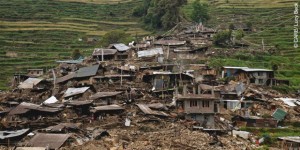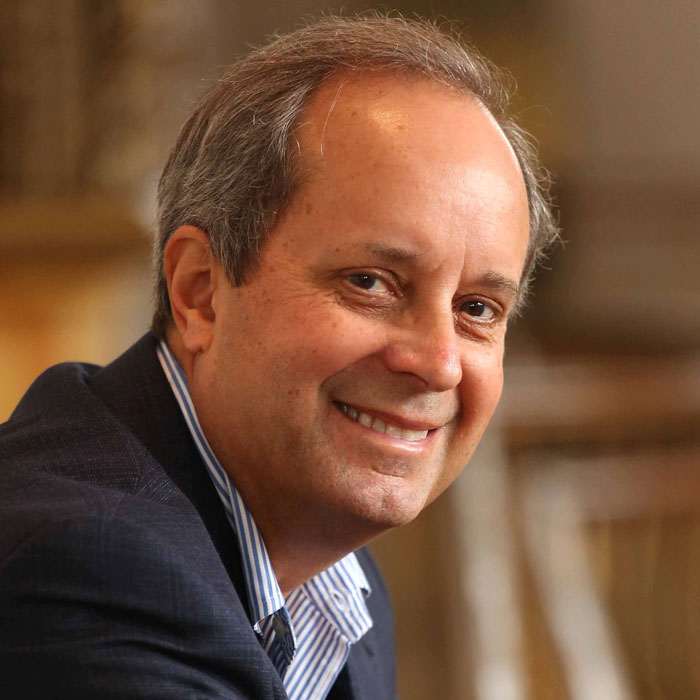Five Viewpoints on Health and Security
This week in Washington, D.C., I had the opportunity to hear five speakers with unique perspectives on an important topic: preventing human insecurity in a very insecure world. Ant?nio Guterres was part of a briefing hosted by the United Nations Refugee Agency (UNHCR) and the U.S. Commission on International Religious Freedom at the National Press […]
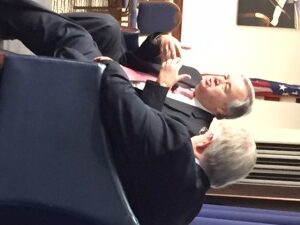
This week in Washington, D.C., I had the opportunity to hear five speakers with unique perspectives on an important topic: preventing human insecurity in a very insecure world.
Ant?nio Guterres was part of a briefing hosted by the United Nations Refugee Agency (UNHCR) and the U.S. Commission on International Religious Freedom at the National Press Club. Guterres has a tough job. He is the? U.N. High Commissioner for Refugees and oversees the UNHCR. In the coming weeks, 15 million displaced Syrians and Iraqis will face another winter away from home, for many it is their fifth winter of freezing temperatures. UNCHR’s aid program this winter will total about $236 million (USD) and help 2.5 million Syrians and 700,000 Iraqis.
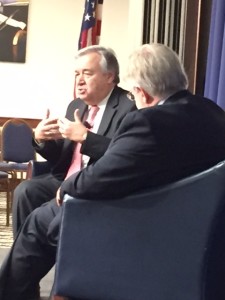
In 2014, violence and persecution forced nearly 14 million people from their homes, with children making up 51 percent of the total. The majority of refugees are hosted in developing countries, at least a quarter in the least developed – places where resources are scarce. Guterres was asked what he thinks is the solution to the refugee problem. He said those causing insecurity need to recognize that they have more to loose than to gain by their actions. An environment with no school for kids, few employment opportunities and little hope for the future is a breeding ground for trouble. Solutions will require not only continued humanitarian assistance, but also improvements in creating security and improving the general economic conditions
On Capitol Hill, I attended a conference on Challenging Climate Change: Practical Solutions from Business, National Security and Faith perspectives.
Rep. Chris Gibson, R-New York, has introduced House Resolution 424 that urges steps to address climate change. He says if left unchecked it will lead to “threat multipliers that will aggravate stressors abroad such as poverty, environmental degradation, political instability and social tensions.” He believes “American ingenuity, innovation and exceptionalism” can find solutions.
Retired Brig. Gen. Stephen A. Cheney is chief executive officer of the American Security Project. He believes climate change is a national security threat to the United States because of the vulnerability it causes to military bases (our largest naval base in Norfolk is raising its docks by 3 feet, for example) and the possibility of generating political instability in the world because of lack of food and water.
Brad Figel is vice-president of public affairs for Mars Incorporated – a 35 billion company with assets in 74 countries. As a science-based company that depends on agricultural products for its revenue, Figel said they are taking steps to lessen their risk and protect the interests of the thousands of farmers they rely on around the world.
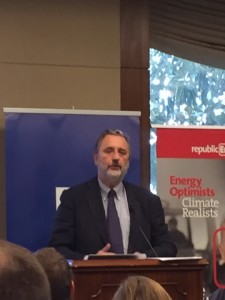
Netherlands Ambassador Henne Schuwer says Katrina helped the Dutch to understand that some of the hard infrastructure plans were not consistent with the challenges of climate change. He says whatever they build now needs to integrate economic plans to improve the quality of life as well as infrastructure that is more green in nature. Finally, he pointed out any planning for the future needs to incorporate the U.N. Sustainable Development Goals.
Five speakers from five different perspectives. Each of them is thinking long term about the risks to human health and security – what causes it and what we can do about it. As for those of us interested in disaster philanthropy, they present a sobering reminder that focusing on immediate response, as beneficial as it may be, is missing many pieces of the puzzle to providing healthy and safe lives.
More like this
